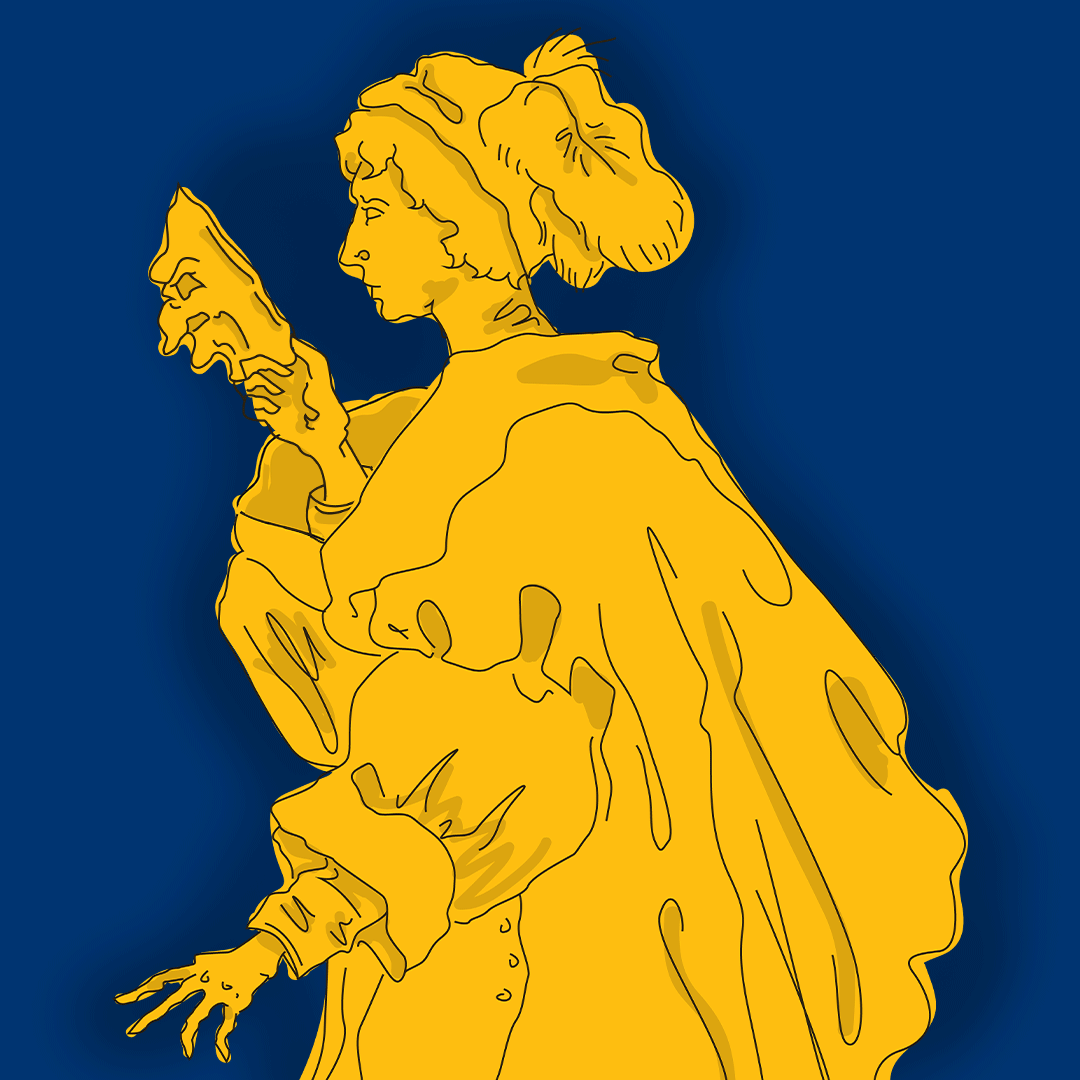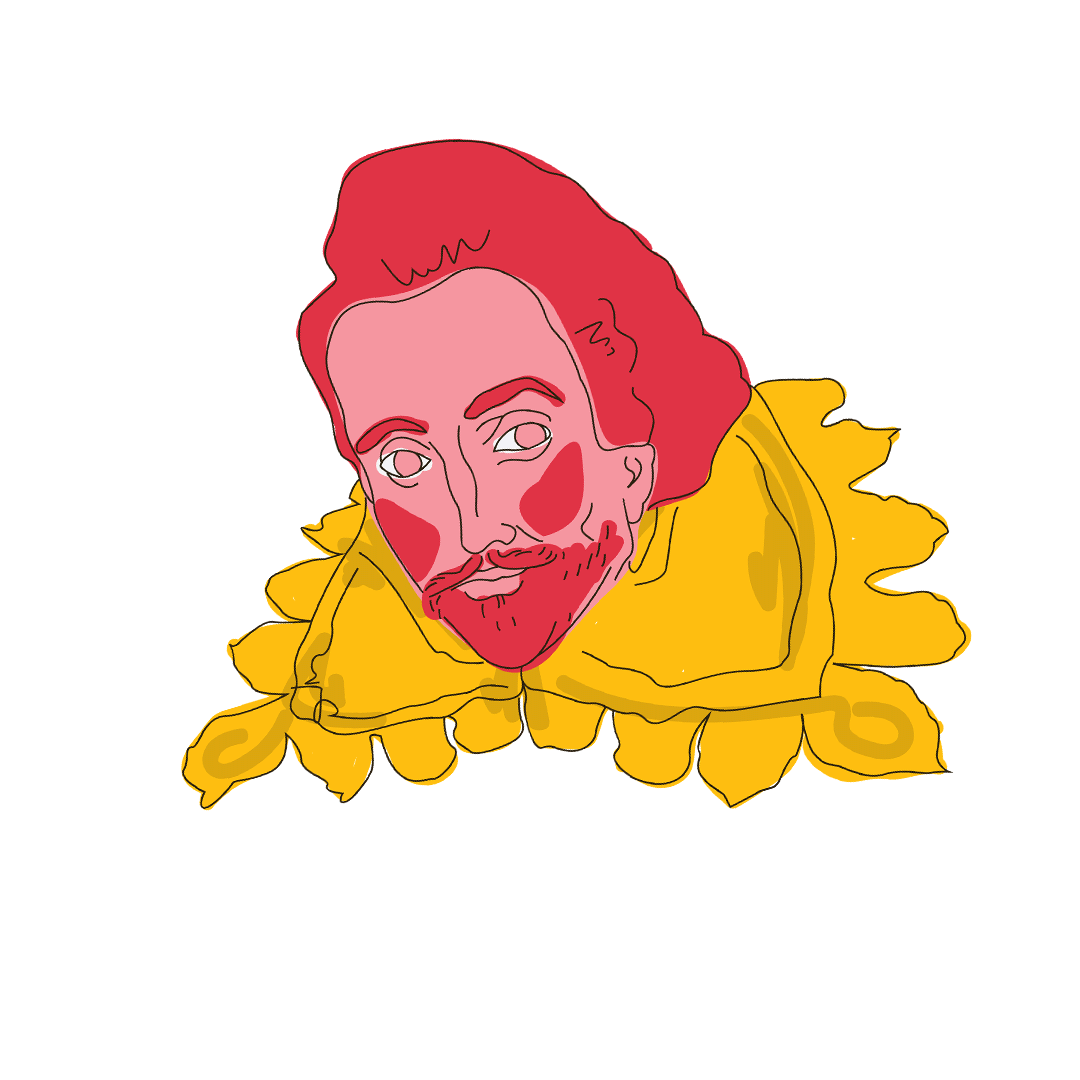OUTFACED TAKES A WALK
OUTFACED TAKES A WALK
A laidback look at Megan's Bachelor Degree graduate collection. In this editorial, theatrical fashion pieces are set against a stage of the streets of Melbourne.
A laidback look at Megan's Bachelor Degree graduate collection. In this editorial, theatrical fashion pieces are set against a stage of the streets of Melbourne.
Multimedium Designer, Melbourne.


Photography & Styling: Grace White, Bobby Clark
Models: Steve Fernando, Orson Silk, Ben deSilva


concept statement
Why do we wear masks; and how do they define us? Outfaced uses the symbol of a mask to visualise themes of identity and authenticity.
So, what is authenticity? If authenticity is relative to the medium, experience and the individual, does the word authenticity has any meaning at all?
Authenticity, to many, means freedom to express themselves outside the boundaries of traditionally accepted societal norms.
Bold and graphic textile design takes precedent here, conceptualizing the themes and inspirations behind the ‘Outfaced’ collection. WWII and Cold War-era propaganda imagery and the imaginative illustrations of Shakespeare’s published works in the 1800s serve to inform the style of prints developed for the range.
The collection deconstructs menswear symbols from the 1940s; softening them with shapes from sleepwear and colourful prints. These motifs are distorted, with blown-up pin stripes, oversized peak lapels, and garments garnished with lingerie-esque frills.
Outfaced features a suit that melts into a robe, a jacket that unzips into a quilt and a twin tracksuit that skirts the line of playtime and bedtime. Classic men’s silhouettes are counterbalanced with slip skirts and dresses, and shirts drawn out to knee-length.
A range of fabrications reflect the themes of hard and soft with twill, shirting, satin, jumper jersey, active stretch knit and organic cotton jersey fleshing-out the collection.
The customer for this collection is creative, provocative and experimental; and their fashion taste reflects it. The transeasonal drop is consequential to the emerging disregard for conventions in dress and traditional seasons in the fashion industry.
Outfaced deconstructs and re-assembles its historical and social influences in a way that feels contemporary; embracing the culture of performance through clothing.
‘outface’
verb
past tense: outfaced; past participle: outfaced
disconcert or defeat (an opponent) by confronting them boldly.


the future of menswear
Today, 65% of men in the UK aged 25-44 believe that gender stereotypes are dangerous to society. They feel misrepresented – the versions of masculinity and strength purported by brands are removed from the experience of modern men. (Stott, 2018) According to Rachael Stott, writing for LS:N Global ‘it is important that brands do not resort to promoting a singular vision of masculinity.’
(Stott, 2018)
Men of all different ages and walks of life are approaching a certain level of self-awareness about the difference between their own wants and desires, and those placed upon them by society. (The Future Laboratory, 2018) Awareness is just the first step on a path towards change in behaviour, and the early adaptors are already out there pushing the boundaries.
Men’s attitudes today are changing, and are demanding that same change from the brands surrounding them. In order to stay relevant, brands need to be willing to discard the old ‘rules’ on how to relate and market to men and be receptive to changing cultural attitudes. ‘Forward-thinking marketers are appealing to the emotions of men rather than their physicality when developing creative activations. Brands such as Lynx and Harry’s have overhauled their messaging to eliminate their previously laddish approach, and instead are creating responsible communications that signify a new way to visualise manliness.’ (Stott, 2018)
‘Outdated design cues associated with gender no longer represent the men of today. The creative industries are exploring more nuanced ways to portray the complexities of manhood, emphasising the softer, more sensitive and vulnerable qualities of modern masculinity.’ (Stott, 2018)
‘In 2021, the menswear market is projected to grow 1.9 per cent; a full half-per cent faster than womenswear.’ (Millar, 2019)
Matchesfashion.com may be the future of luxury retailing. A pioneer in online fashion retail, the company strives to keep ahead-of-the-curve. Jake Millar, writing for GQ magazine states ‘Not only does the site now feature original video and photo shoots, interviews, features and how-to-wear guides, but the company also produces its own printed magazine.’ (Millar, 2019)
‘Plus, from a retailer that once served mainly British customers, Matchesfashion.com now draws 82 per cent of its business outside the UK. Last year it brought in $553m – and for what began as a humble bricks-and-mortar store, it has also been a technological triumph, with 95 per cent of the company’s business generated online, more than half of that on mobile platforms.’ (Millar, 2019)
The future of retail resides in multifaceted experience, which, as demonstrated by Matchesfashion.com is not necessarily physical experiences. (Millar, 2019) Through their offerings of fashion news, insider interviews and style guides (Millar, 2019) the company creates a platform that welcomes consumers into a fold of like-minded fashion enthusiasts. They are not merely a customer, but a collaborator, or a friend.
Damian Paul, menswear buyer for Matchesfashion.com, divulges to GQ reporter Nick Millar ‘“Brands are listening to how men’s lives have changed, and guys don’t have to wear suits to work anymore. The influence within menswear has changed, so sports stars, guys in music who have created this image for themselves that people really aspire to have.”’ (Millar, 2019)
On the subject of buying trends in menswear Paul continues ‘“Five years ago, a male customer had no more than three brands that they love and 90 per cent of their buy was with those three brands,” he says. “Now you can see them choose from seven, eight, nine brands. They want to be part of the fashion conversation.”’ (Millar, 2019)
With menswear consumers more experimental than ever, now is the perfect time to be an emerging brand in the menswear market with something new to offer. (Millar, 2019) In his piece on Matchesfashion.com Nick Millar observes ‘half of his [Matchesfashion.com’s] buyers’ time is spent finding new brands to pick up. More than ever before, men are looking for the next big thing in fashion.’ (Millar, 2019)


‘All the world’s a stage,
And all the men and women merely players;
They have their exits and their entrances,
And one man in his time plays many parts’. (Shakespeare and Van Every, 1906)
While historical convention may have dictated the separation of Shakespeare’s plays into comedy and tragedy, the reality of the stories and characters therein is a vastly more human depiction; that which contains comedy and tragedy, multilayered and multifaceted.
As a playwright born of an actor, Shakespeare understood his cast, likely writing parts intended for specific actors. Intrigue surrounding the deception and identity of Viola in Twelfth Night is heightened by the consideration of the young male actor who would play them. Viola – disguised as her brother and page Cesario – is sent on behalf the Duke Orsino – who Viola is secretly in love with – to confess love to Lady Olivia; resulting in Olivia falling for the messenger, Cesario.
‘And yet by the very fangs of malice I swear that I am not that I play’ (Blakeway Productions, 116 Films and THIRTEEN in association with Shakespeare's Globe, 2012)
As stated in “Conceal Me What I Am...” for Shakespeare Uncovered; ‘It allows you to make a series of jokes about gender, cross-dressing, boys playing girls…there’s a lot of language to do with impersonating the voice of another gender.’ (Blakeway Productions, 116 Films and THIRTEEN in association with Shakespear's Globe, 2012)
Shakespeare presents identity as flippant – a changing thing that can easily be created, moulded and assumed. Like actors perform a role, his characters too perform roles predisposed to them by society, or roles which they assume to escape the bounds placed upon them. For Viola, it’s through her ‘role’ as Cesario and position as a page to the Duke Orsino that she is able to speak plainly and on somewhat equal footing about her feelings for him. It is through adopting this identity that she gains this element of freedom of expression.
Rosa Inocencio Smith, writing for the Atlantic, muses on how themes of identity fill Shakespeare’s portfolio of plays ‘Shakespeare was “an inveterate punster,” piling meaning on meaning in every phrase so that even his words have double identities. What’s more, his plays are filled with masks and mix-ups, double agents and disguises, lookalikes and false appearances.’ (Smith, 2016)
Identity, acting and masks
How Shakespeare's characters transcend time
The misunderstanding surrounding identity drives everything from plot to character development and both comic and tragic drama; it’s a theme central to many of Shakespeare’s works.
The struggles of Shakespeare’s characters are so intrinsically human, not merely shaped by societal convention or trend of the era, that their appeal and relatability remain steadfast into the 21st century. ‘Simply put, people are complicated. To present them as otherwise would be a failure of art’ (Smith, 2019)
In his video YouTube: Art or Reality? released under the YouTube channel Philosophy Tube, author and artist Oliver Thorn explores the meaning of truth and authenticity in the context of acting and performance. The Brechtian production, in which Thorn performs all roles, depicts two detectives interrogating Thorn on the authenticity of his public persona and subsequent para-social relationship to his audience.
Using the setting of an interrogation as a way to explore conflictions of acting, truth and identity – Thorn poses philosophical questions to himself and his audience; questioning why one medium or mode of expression may be perceived as any more or less authentic than another.
“‘Acting isn’t lying.’
‘Isn’t it? …There is a clear line between a character somebody plays and their true self.’
‘Not always.’” (Philosophy Tube, 2018)
Performance, Thorn states, cannot be separated from the performer’s inner truth.
As an actor, YouTuber and philosopher, Thorn feels the confliction of these different identities and the varying pressures and definitions of truth and authenticity demanded by each of them. Truth, he argues, is relative to one’s own inner experience and should not be constricted by one all-encompassing definition.
“Do you think YouTube videos are performances?
Some of them. But that’s not performance in contrast to real, that’s one kind of performance in a lifetime of hyper-real performances. Copies without an original that aren’t like somebody putting on a mask, but that actually inform the person being them. ‘All the world’s a stage, and all the men and women merely players.’”
(Philosophy Tube, 2018)



trend research
Runway images: Getty Images
quilted coats
superlative suits
deconstructed jackets
bed meets boilersuits
Sleek skivvies
frills & chills
A.P.C. Spring 2020
Balmain Spring 2020
Louis Vuitton Mens 2020
Jean Paul Gaultier Haute Couture A/W ‘19/’20
Paul Smith Mens 2020
Undercover Fall 2019
Libertine Spring 2020
Ralph & Russo Spring/Summer 2020
Balenciaga Spring 2020
Versache Fall 2019
Paul Smith Mens Fall 2019
Marine Serre Spring 2020
Gucci Spring 2020
Libertine Spring 2020
Balmain Spring 2020
Gucci Resort 2020
Ambush Mens Fall 2019
Bode Mens Spring 2019
Vetements Spring 2020
Isabel Marant Fall 2019
Balenciaga Spring 2020
Batsheva Spring 2020
Valentino Spring 2020
Batsheva Spring 2020
expansive shirts
Balenciaga Spring 2020
Y/Project Fall 2019
Jacquemus Spring 2020
Libertine Spring 2020
stretch dresses
Matty Bovan Spring 2019
Ralf & Russo Spring Summer 2020
Louis Vuitton Mens 2020
Moschino Fall 2019
Holiday Resort 2020
Loewe Spring 2020
Comme des Garçons Spring 2020
Loewe Spring 2020
Versache Fall 2019
Fendi Mens Spring 2020
Bode Mens Spring 2019
Versache Fall 2019
graphic tees, statement tights
slippery skirts
Kenzo Mens 2019
Givenchy Spring 2020
Louis Vuitton Mens 2020
Kenzo Mens 2019
flamboyant knits and tracksuits
Loewe Spring 2020
SSS World Corp Spring 2020
Isabel Marant Fall 2019
slept-in silhouettes
Fashion East Spring 2020
development
Sketches and notes


tech drawings
CADS and fabrications

Quilt jacket fabrication
Self. Poplin. 100% cotton. 90 GSM
Backing. Homespun. 100% cotton. 110GSM
Applique. Homespun. 100% cotton. 95GSM

Skivvy fabrication
Organic stretch jersey. 93% organic cotton / 7% lycra. 140GSM
Jumpsuit fabrication
Twill. 100% cotton. 145GSM

Skivvy fabrication
Organic stretch jersey. 93% organic cotton / 7% lycra. 140GSM
Shirt Dress fabrication
Lawn. 100% cotton. 75GSM
Bias Skirt fabrication
Satin. 100% polyester. 85GSM

Cotton Como. 100% cotton. 150 GSM
Short fabrication
Poplin. 100% cotton. 90 GSM
Shirt fabrication
Cotton Como. 100% cotton. 150 GSM
Jacket fabrication

Quilted Jersey. 95% polyester 5% elastane. 255 GSM
Pant fabrication
Quilted Jersey. 95% polyester 5% elastane. 255 GSM
Crew fabrication
Power Net. 90% polyester 10% elastane. 60 GSM
Tee fabrication
Ribbing fabrication
Plain 1 x 1 ribbing. Polyester/cotton. 225 GSM

Jumper fabrication
100% Australian merino wool
Dress fabrication
Active. 80% matte polyester 20% spandex. 225 GSM

Active. 80% matte polyester 20% spandex. 225 GSM
Legging fabrication
Skivvy fabrication
Power Net. 90% polyester 10% elastane. 60 GSM
Roll-Neck Tee fabrication
Quilted Jersey. 95% polyester 5% elastane. 255 GSM
Satin Short fabrication
Satin. 100% polyester. 85 GSM
Ribbing fabrication
Plain 1 x 1 ribbing. Polyester/cotton. 225 GSM






















Stott, R. (2018). Masculinity Rebranded. [online] LS:N Global. Available at: https://www.lsnglobal.com/design-directions/article/22263/masculinity-rebranded [Accessed 25 Jun. 2019].
Millar, J. (2019). How Online Retailers Are Championing Emerging Designers. [online] GQ. Available at: https://www.gq.com.au/style/news/how-matchesfashioncom-is-transforming-itself-into-a-true-game-changer/news-story/4e4551edc8940bf3ee39a7c08a34786f [Accessed 1 Jul. 2019].
The Future Labratory (2018). How are Male Mindsets Changing?. [video] Available at: https://www.lsnglobal.com/new-masculinity/article/22378/video-how-are-male-mindsets-changing [Accessed 25 Jun. 2019].
Smith, R. (2016). One Face, One Voice, One Habit, and 400 Years’ Worth of Persons. [online] The Atlantic. Available at: https://www.theatlantic.com/notes/2016/04/shakespeare-400-anniversary-double-identities/479463/ [Accessed 5 Oct. 2019].
Philosophy Tube (2018). YouTube: Art or Reality?. [video] Available at: https://www.youtube.com/watch?v=kVav1ri65Ws [Accessed 6 Jun. 2019].
Blakeway Productions, 116 Films and THIRTEEN in association with Shakespeare’s Globe. (2012). Women, Identity and Disguise in Shakespeare’s Comedies: Heroines in Disguise. | Shakespeare Uncovered [video] Available at: https://www.pbslearningmedia.org/resource/shak13.ela.lit.women/women-identity-and-disguise-in-shakespeares-comedies/ [Accessed 9 Oct. 2019].
Blakeway Productions, 116 Films and THIRTEEN in association with Shakespeare’s Globe (2012). “Conceal Me What I Am...” | Shakespeare Uncovered. [video] Available at: https://www.pbslearningmedia.org/asset/shak13_vid_conceal/ [Accessed 9 Oct. 2019].
Shakespeare, W. and Van Every, J. (1906). Shakespeare’s As you like it. Toronto: Morang, p.48.